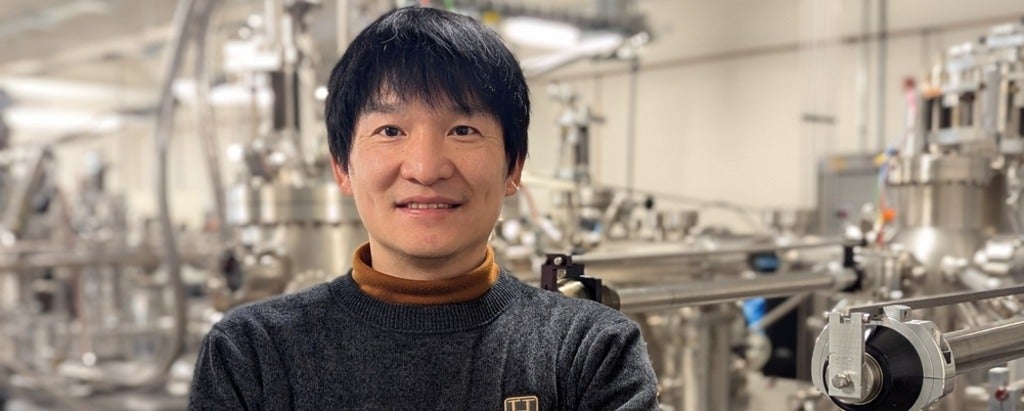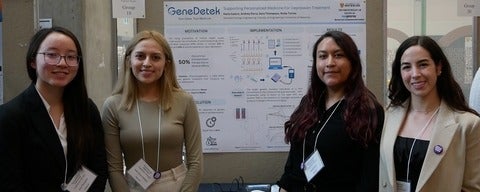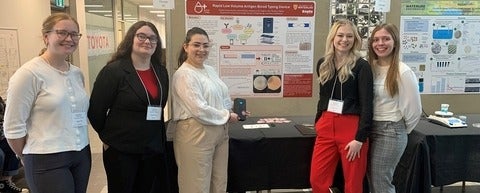Guo-Xing Miao Director of the NE Program wins the En-Hui Yang Research and Innovation Award
Professor Guo-Xing Miao has won the En-Hui Yang Research and Innovation Award. The En-Hui Yang Award is bestowed annually to an outstanding researcher in the University of Waterloo’s Faculty of Engineering.
Miao’s research focuses on the specific spin quantum properties in condensed matter platforms. The precise confinement, transport and manipulation of electrons and ions across nano materials and devices, enriched by their accompanied spin degrees of freedom, allows for advanced information processing in both the quantum and classic realms.
His team synthesizes industrial level quantum materials such as complex spin systems, ion platforms, topological phases, and superconductors—to mass fabricate scalable, wafer-level devices.
His innovation extends to a new company called SpinQ. Miao is one of the founders and science advisors of SpinQ. This company was founded in Waterloo, with all founding members deeply connected with the Institute for Quantum Computing.









